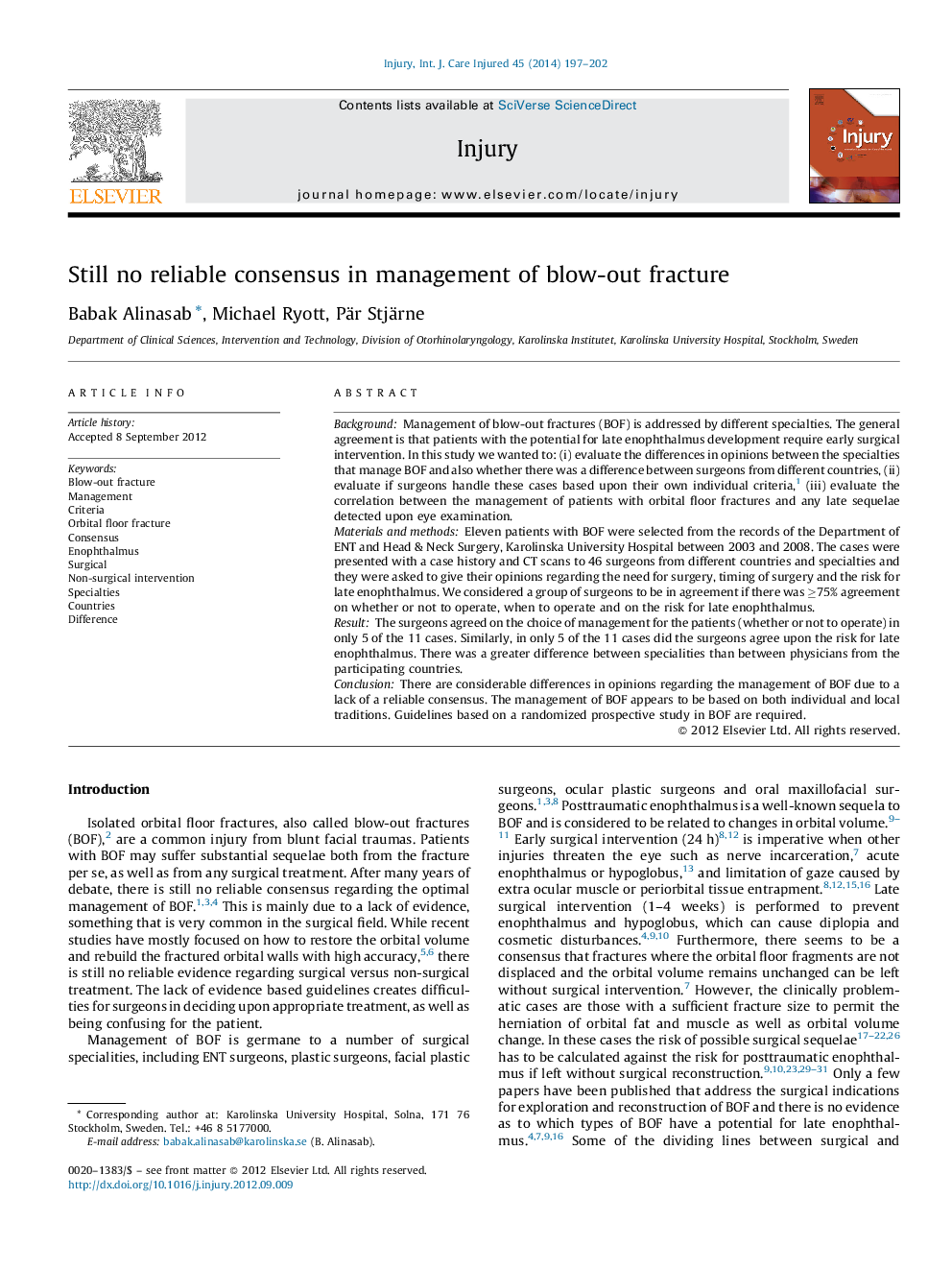| Article ID | Journal | Published Year | Pages | File Type |
|---|---|---|---|---|
| 3239821 | Injury | 2014 | 6 Pages |
BackgroundManagement of blow-out fractures (BOF) is addressed by different specialties. The general agreement is that patients with the potential for late enophthalmus development require early surgical intervention. In this study we wanted to: (i) evaluate the differences in opinions between the specialties that manage BOF and also whether there was a difference between surgeons from different countries, (ii) evaluate if surgeons handle these cases based upon their own individual criteria,1 (iii) evaluate the correlation between the management of patients with orbital floor fractures and any late sequelae detected upon eye examination.Materials and methodsEleven patients with BOF were selected from the records of the Department of ENT and Head & Neck Surgery, Karolinska University Hospital between 2003 and 2008. The cases were presented with a case history and CT scans to 46 surgeons from different countries and specialties and they were asked to give their opinions regarding the need for surgery, timing of surgery and the risk for late enophthalmus. We considered a group of surgeons to be in agreement if there was ≥75% agreement on whether or not to operate, when to operate and on the risk for late enophthalmus.ResultThe surgeons agreed on the choice of management for the patients (whether or not to operate) in only 5 of the 11 cases. Similarly, in only 5 of the 11 cases did the surgeons agree upon the risk for late enophthalmus. There was a greater difference between specialities than between physicians from the participating countries.ConclusionThere are considerable differences in opinions regarding the management of BOF due to a lack of a reliable consensus. The management of BOF appears to be based on both individual and local traditions. Guidelines based on a randomized prospective study in BOF are required.
